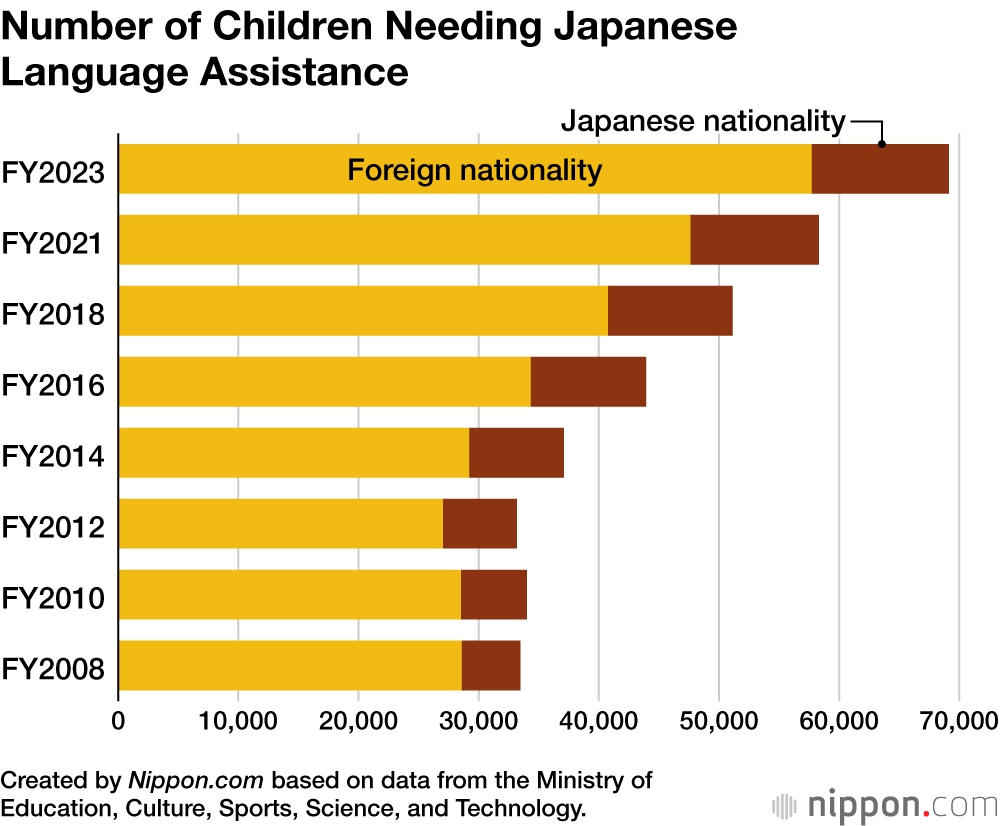
Language Support Needed for Many Foreign Children in Japan
Education Society- English
- 日本語
- 简体字
- 繁體字
- Français
- Español
- العربية
- Русский
As of 2023, there were approximately 69,123 elementary, junior high, and high school students in Japan who needed Japanese language assistance either because they were born abroad or because their parents are non-native Japanese speakers. This was revealed in a survey conducted every two years by the Ministry of Education, Culture, Sports, Science, and Technology. An increase of 18.6% was seen from the previous survey in 2021, when 58,307 students were recorded, and it was more than double the 33,470 in the 2008 survey.
The most common native language for students who needed Japanese language assistance was Chinese with 13,754, along with 12,579 who used Portuguese and 11,121 who spoke Filipino. By prefecture, Aichi had by far the largest number with 13,984, followed by Kanagawa with 8,589, and Tokyo with 6,312.
The dropout rate was 8.5% among high school students needing assistance with Japanese, which is markedly higher than the dropout rate of 1.1% for high school students overall. At 46.6%, less than half of such high schoolers went on to higher education and 38.6% of the students who chose instead to enter the workforce were employed in nonregular jobs. This highlights how the language barrier limits life choices for students.
At the end of October 2023, the number of foreign workers in Japan exceeded 2,000,000 for the first time. To overcome severe labor shortages, the government is becoming more proactive in accepting foreign workers and looking at further opening the way for family members to be able to join them in Japan. However, the international competition for human resources means that, in order for Japan to become a country of choice for foreign workers, it will also be crucial to improve circumstances so that their children are able to study and follow their own career paths too.
(Translated from Japanese. Banner photo © Pixta.)

